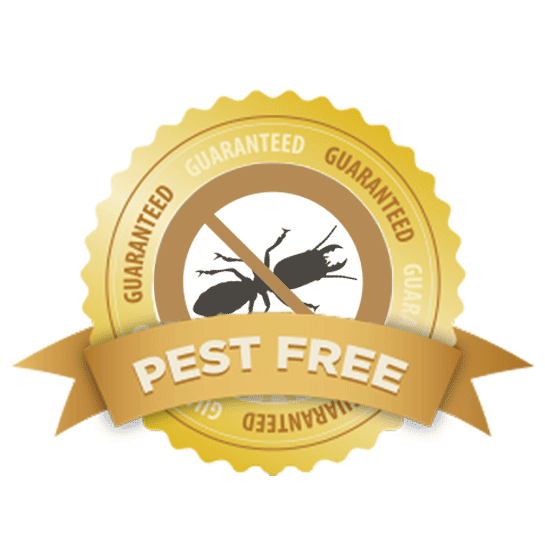Safe and Dependable Bug Control for Lasting Protection
Effective bug administration needs a multifaceted strategy that balances environmental stability with the demand for efficient bug reductions. The nuances of these methods might not be promptly clear, motivating a more detailed examination of the methods that can lead to sustainable parasite control results.
Comprehending Pest Control Approaches
Bug control includes a variety of techniques targeted at managing and eradicating unwanted insects and rodents that can threaten both wellness and property. Recognizing these techniques is essential for reliable bug administration.
The key groups of insect control techniques consist of mechanical, biological, and chemical approaches. Mechanical techniques involve physical barriers and traps to avoid parasite entrance and capture unwanted varieties. Utilizing screens on home windows or employing sticky catches can significantly decrease insect populaces without introducing hazardous materials - exterminator coquitlam.

Chemical bug control is frequently one of the most identified approach, utilizing pesticides to remove insects. These chemicals can be efficient but must be used with caution to stay clear of unfavorable impacts on non-target varieties and the atmosphere.
Advantages of Eco-Friendly Solutions
Exactly how can environment-friendly remedies change insect control practices? The adoption of environmentally friendly insect control approaches supplies various advantages, significantly improving the effectiveness and safety of pest management (exterminator coquitlam). These solutions utilize all-natural components, decreasing the reliance on harmful chemicals that can present risks to human wellness and the setting. This shift not only shields family members and family pets yet likewise decreases the possibility for soil and water contamination.

One more benefit is the positive influence on local biodiversity. Green solutions are developed to target particular bugs while protecting useful pests and wildlife, advertising a well balanced ecosystem. This approach straightens with the growing consumer need for lasting practices, enhancing the track record of bug control companies.
Integrated Parasite Management Approaches
The implementation of green remedies normally leads to the fostering of Integrated Bug Monitoring (IPM) approaches, which even more boost pest control effectiveness. IPM is an alternative strategy that incorporates numerous techniques to manage pest populations while minimizing environmental impact. This technique emphasizes using organic, social, mechanical, and chemical controls, making sure a well balanced and sustainable approach of parasite administration.
One fundamental aspect of IPM is the detailed assessment of pest task and environmental problems. By keeping an eye on bug populaces and determining their life process, specialists can implement targeted treatments that disrupt the parasite's environment or lifecycle, minimizing dependence on chemical pesticides. Furthermore, cultural techniques such as plant turning and habitat control can substantially reduce insect establishment and reproduction.
An additional crucial element is making use of organic control agents, such as useful insects or microbes, which can naturally reduce pest populaces. When chemical applications are needed, IPM focuses on the use of low-risk chemicals and uses them uniquely, lessening exposure to non-target organisms and people.
Including IPM methods not only improves parasite control efficiency but also advertises a safer ecological community, straightening with the growing need for sustainable practices in parasite management.
Safe Practices for Home Owners
Recognizing the significance of secure practices in insect control can encourage homeowners to successfully handle parasite issues while securing their health and wellness and the setting. Implementing safe you could check here methods and safety nets is essential in reducing exposure to unsafe chemicals.
House owners must first assess their environment for conditions that draw in bugs, such as standing food, water, and mess waste. On a regular basis cleaning and securing access factors can deter pests from attacking the home. Using natural deterrents, such as important oils or diatomaceous earth, can give effective alternatives to chemical pesticides.
When chemical therapies are needed, homeowners ought to opt for items that are particularly classified as risk-free for residential usage. It is important to comply with application guidelines thoroughly to prevent too much exposure. Making use of targeted therapies in areas where insects are identified, instead than blanket splashing, can dramatically minimize chemical use.
Last but not least, maintaining open interaction with insect control professionals is important. Home owners must ask about the safety of items used and request environment-friendly options whenever feasible. residential termite control By taking on these secure practices, home owners can create a healthier living atmosphere while effectively handling parasite concerns.

Tips for Long-Term Defense
Establishing an insect monitoring strategy that highlights lasting security can greatly enhance the efficiency of the risk-free techniques formerly talked about. To accomplish this, property owners must implement routine assessments of their residential or commercial property, concentrating on concealed areas such as attic rooms, basements, and crawl spaces. Early detection of bug activity is important in stopping infestations from holding.
These techniques decrease attractants that draw pests right into the home. Sealing entry factors, such as splits around home windows and doors, can successfully block potential pest gain access to.
Landscaping should likewise be considered; maintaining plants trimmed and maintaining a range in between plant life and the home lessens hiding areas for insects. Utilizing all-natural deterrents, such as important oils or diatomaceous planet, can better prevent problems without resorting to rough chemicals.
Finally, working together with a specialist insect control solution for regular assessments can supply an extra layer of security. These experts can use tailored suggestions and advanced treatments, guaranteeing that your home continues to be secured versus parasites in the long term.
Verdict
To conclude, risk-free and reputable bug control calls for a diverse strategy that stresses environment-friendly approaches and integrated pest monitoring. By implementing all-natural deterrents, carrying out regular assessments, and keeping appropriate cleanliness, home proprietors can considerably decrease pest populations while securing useful insects and the atmosphere. Partnership with expert insect control solutions improves the effectiveness of these approaches, ensuring tailored services that supply long lasting security and comfort against future problems.
Reliable pest management calls for a complex approach that over at this website balances ecological honesty with the demand for reliable parasite reductions. The adoption of environmentally friendly insect control techniques offers numerous benefits, significantly boosting the efficiency and safety of pest management.The application of environment-friendly options naturally leads to the fostering of Integrated Bug Administration (IPM) strategies, which further improve pest control efficacy. exterminator coquitlam. By monitoring parasite populations and recognizing their life cycles, experts can carry out targeted treatments that interrupt the insect's habitat or lifecycle, decreasing reliance on chemical pesticides.In conclusion, reputable and safe parasite control requires a diverse approach that stresses environment-friendly techniques and integrated pest management